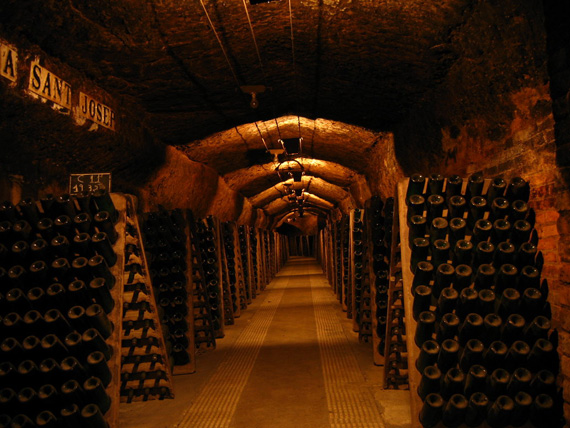WINE STORAGE AND PRESERVATION

Initially, we must make clear that not all wines are suitable for aging. The type of the wine, the grape variety and the intention of the winemaker are crucial factors that determine the aging potential.
Many wines, particularly white and rose but some red too, should be consumed immediately or in a short time. Certainly, even those who remain at home, even for a few weeks, can be affected by the way of conservation there. For many wine lovers, to have the proper storage unit is imperative.
Below we will present the main factors for proper wine storage and preservation:
Storage temperature
Apart from maintaining the proper temperature, proper wine storage requires very little variation from the ideal temperature of 14 C. Our main concern is that wine storage temperature does not fluctuate more than 2 º - 3 º C and even these small fluctuations will be rare. With each variation of temperature, external air may penetrate into the bottle causing damage to its valuable content. Furthermore, it affects the evolution of the wine in the bottle with poor results on the taste and aroma.
Humidity
The ideal humidity level for wine storage at home is between 60% - 70%. Low humidity can make the cork to dry and crack, allowing air to penetrate into the bottle and oxidize the content. High humidity can mold the cork with very bad results.
Ventilation and surrounding area
Because it is assumed that air from the storage environment will enter the bottle through the cork, make sure there are no strong odors in the surrounding area for long periods. These include detergents, dyes or chemicals of any kind.
Light
Most bottles of wine with aging potential have dark color (usually green or brown) to allow the least light to come into contact with the wine. Wine loves darkness. Never store your wine in direct sunlight or in a well-lit room.
Stored inclined
Wine bottles should always be stored horizontally in a 45 ° angle with the cork downwards or somewhere in between. This will keep the wine in constant contact with the cork ensuring that it will remain wet without risking to dry out and allow air to enter.
Ideally, a wine preserver will keep your wines safe until you decide to enjoy them. Alternatively, choose a dark basement without many smells and temperature fluctuations.


